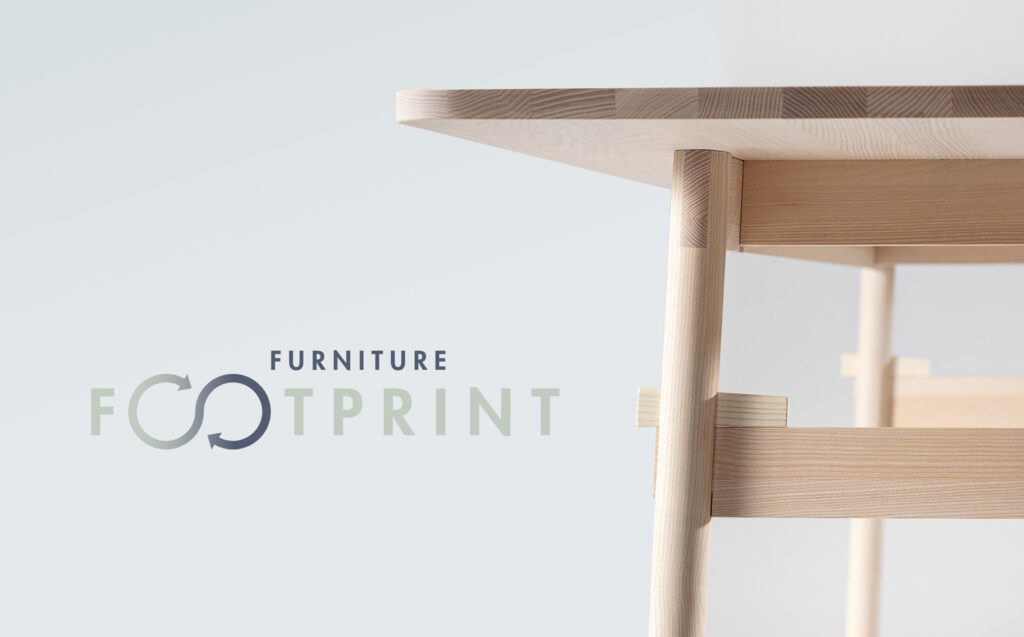FIND YOUR FOOTPRINT
a cooperation project with Zeitraum Furniture)
Designproject for:
4.-5+. Sem, max 10 students
Language:
German & English
Supervision:
Prof. Ineke Hans
LB Mathias Hahn
Included talks & conversations:
• Mathias Hahn (London) + diverse Zeitraum designer
Compulsory Excursions:
• 29/30 April London:
studio visit Mathias Hahn / furniture visits and meetings, a.o:
V&A Furniture Galleries & Contemporary Design Galleries, plus
Design Museum: Enzo Mari Exhibition
• 14/15 May Bayern:
visit to Zeitraum + Factories
• 27 May 17.00 a talk by Zeitraum designer Julia Läufer (Läufer & Keichel)
Zeitraum is an international operating German furniture company with a strong focus on furniture footprint and ecological certification.
In recent years they have developed tools to communicate how this is integrated in their design and production, as well as new strategies for repair and recycle and they set up an in depth material library and criteria for sustainable product design.
This Summer Semester we will cooperate with Zeitraum. We’ll look into future scenarios for living and how furniture could be produced, shipped and used in the future.
You will design a piece of furniture:
• with an ‘as low as possible’ ecological footprint.
• out of solid wood (wallnut, oak….)
• fitting in a 40 x 40 x 80 cm box
• each project should focus on 2 to 3 of the following 10 challenges:
1. repairability and spare parts
2. logistics (ordering online, pre and post production transport routes and packaging )
3. natural upholstery materials (that comply with fire safety regulations)
4. flatpack (foldable furniture, quick assembly in the contract sector, modularity)
5. scarce resources (resource efficiency)
6. recyclability and separability of materials
7. increasingly smaller living spaces and higher costs for smaller living
8. alternative upholstery (webbing, paper cord, rattan, flag line, etc.)
9. social compatibility of the materials
10. usability in domestic or contract space
• As a kick-off we visit some of Zeitraum’s production facilities and hear about their visions and strategies. • • You will get insight in and access to their eco-database and material library to support you in making the footprint of your design as low as you can.
• At the end of the project a good 1:1 model is required + a film that represents your concept, the project and its impact.
• The best outcomes will be presented at a desingfair or exhibition in 2024 or 2025
The excursion and part of the materialcosts are covered. The project is limited to max 10 students.
Please note: The project is limited to max 10 students.
Send an email to if you like to join!
Zeitraum ist ein international tätiges deutsches Möbelunternehmen mit einem starken Fokus auf den Fußabdruck von Möbeln und die ökologische Zertifizierung.
In den letzten Jahren haben sie Instrumente entwickelt, um zu kommunizieren, wie dies in ihr Design und ihre Produktion integriert wird, sowie neue Strategien für Reparatur und Recycling und sie haben eine umfassende Materialbibliothek und Kriterien für nachhaltiges Produktdesign eingerichtet.
In diesem Sommersemester arbeiten wir mit Zeitraum zusammen und beschäftigen uns mit Zukunftsszenarien für das Wohnen und wie Möbel in Zukunft produziert, versandt und genutzt werden könnten.
Du entwerfst ein Möbelstück:
• mit einem möglichst geringen ökologischen Fußabdruck.
• aus Massivholz (Nussbaum, Eiche…)
• Passend für eine Box mit den Maßen 40 x 40 x 80 cm
• Jedes Projekt sollte sich auf 2 bis 3 der folgenden 10 Herausforderungen konzentrieren:
1. Reparierbarkeit und Ersatzteile
2. Logistik (Online-Bestellung, Transportwege vor und nach der Produktion und Verpackung)
3. Natürliche Polstermaterialien (die den Brandschutzbestimmungen entsprechen)
4. Flatpack (faltbare Möbel, schnelle Montage im Objektbereich, Modularität)
5. Knappende Ressourcen (Ressourceneffizienz)
6. Recyclingfähigkeit und Trennbarkeit von Materialien
7. Immer kleinere Wohnflächen und höhere Kosten für kleineres Wohnen
8. Alternative Polsterung (Gurtband, Papierkordel, Rattan, Fahnenleine etc.)
9. Sozialverträglichkeit der Materialien
10. Nutzbarkeit im wohn oder vertraglichen Bereich
• Zum Auftakt besuchen wir einige Produktionsstätten von Zeitraum und erfahren mehr über ihre Visionen und Strategien.
• Du erhaltest Einblick in und Zugriff auf Zeitraums Öko-Datenbank und Materialbibliothek, um dir dabei zu unterstützen, den Fußabdruck deines Entwurf so gering wie möglich zu halten.
• Am Ende des Projekts wird ein gutes 1:1-Modell erfordert + ein Film, der dein Konzept, das Projekt und seine Wirkung darstellt. Die besten Ergebnisse werden auf einer Designmesse oder Ausstellung präsentiert in 2024 oder 2025.
Die Exkursion und ein Teil der Materialkosten werden übernommen. Das Projekt ist auf maximal 10 Studierende begrenzt.

